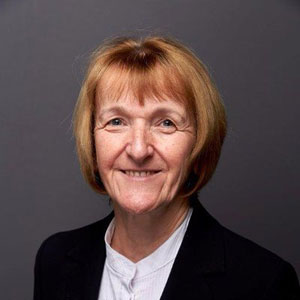This story was posted on the NIHR website on 5th April 2022
The National Institute for Health Research has changed its name. To emphasise our enduring commitment to social care research, from today the NIHR will officially become the ‘National Institute for Health and Care Research’. The acronym ‘NIHR’ will remain unchanged.
A history of investment
Since its establishment in 2006, the NIHR has invested over £200m in more than 470 social care research projects across its portfolio, with £90m worth of NIHR-funded social care studies starting in the last three years. Of these, over a third have been funded by the NIHR’s dedicated School for Social Care Research.
NIHR-funded research is diverse, exploring a wide range of important issues, and has led to a number of changes to social care practice. In one example, a new approach was developed which reduced challenging behaviours among people with learning disabilities in residential settings by two thirds and was rolled out across 800 residential care sites.
As well as the £200m in direct funding, we have also supported and delivered social care research through our wider infrastructure, in particular the Applied Research Collaborations which worked with local authorities to support over 80 studies in 2020/2021, and the Research Design Service which supports researchers to develop high quality applications.
Additionally, the NIHR has supported those who want to develop their career in social care research, funding internships, career development and senior leaders awards and PhDs through the NIHR Academy and the School for Social Care Research. We have also supported those working in the social care sector through the Local Authority Fellowship Scheme.
Deeper and broader commitments
Tied to today’s announcement are a range of investments and commitments to future work.
These are designed to both deepen and broaden the range of social care research the NIHR supports – through funding, building capacity within our research delivery infrastructure, strengthening the links between academia and practice, and engaging carers and people who need care and support.
An increase in spending of £5m a year has been dedicated to social care research, some of which will go towards funding an additional call run through the Research for Social Care programme. This programme funds research which generates evidence to improve, expand and strengthen the way adult social care is delivered for users of care services, carers, and the public. From today, this work will be accompanied by a commitment to fund much-needed research in the area of social care for children and young people, working in partnership with the Department for Education.
Our Health and Social Care Delivery Research Programme is today launching a ‘Social Care Rapid Evaluation’ funding call, designed to fund new teams to deliver rapid reviews of promising social care innovations identified by the social care sector. This will generate nationally relevant evidence to improve care and outcomes for people who use services and professionals delivering those services. And next week, the NIHR and the Engineering and Physical Sciences Research Council will be announcing the studies funded through a new, jointly-run call focused on transforming care and health at home and enabling independence.
The NIHR’s Health Technology Assessment programme is establishing a social care prioritisation committee with wide representation from social care practice, people with lived experience and others. This aims to examine social care research questions, prioritise them and then oversee commissioning briefs to be advertised.
Prof. Lucy Chappell, Chief Executive of the NIHR, said:
“At NIHR, we believe that funding and supporting research that expands and strengthens the way that social care is provided is one of the most important ways to improve standards of care for people who need it. We want to support the incredible work being done on the ground by both paid and unpaid carers.
“This name change is more than symbolic. Our history of investment in social care research already tells a strong story, and today’s concrete plans to further fund and support such research are a clear affirmation of our commitment to this vital part of the health and care sector.
“It is our hope that today’s name change will inspire not just current and future generations of social care researchers, whose talent and expertise can revolutionise the social care sector, but also people who need care and support, carers, the public and those working in social care. The involvement of all these groups will be key to getting the right research to the right places in the right way.”
Minister for Innovation, Lord Kamall, said:
“We want to see the UK continue to be a catalyst of innovation for health and care research from rapidly creating new vaccines to advancing new research to improve the effectiveness of social care, such as developing best practice for supporting people with learning disabilities.
“NIHR’s name change and this additional funding will ensure we remain at the forefront of ground-breaking research in both health and social care.
“I encourage researchers, social care users and practitioners to get involved with social care research. Research is a key way to identify and address current challenges to improve the lives of carers and people receiving social care.”
How you can get involved
The NIHR is calling on researchers, social care practitioners and users of social care services to undertake and get involved with social care research that identifies and addresses current challenges to improve the lives of carers and people receiving social care.
If you are interested in engaging with the NIHR’s work in this area, you can find out more on our social care home page. You can also learn about the work we’re doing with local authorities and explore the resources provided by the School for Social Care Research.
On 26th April, the NIHR’s School for Social Care Research will be holding its annual conference in London. It provides a great opportunity to hear about new studies as well as emerging evidence from the School’s commissioned studies and its implications for adult social care practice. The conference will feature a message from NIHR CEO Prof Lucy Chappell, and a wide range of contributions from experts and practice colleagues in the adult social care field. For more information and to register for your free ticket, visit our conference registration page.





